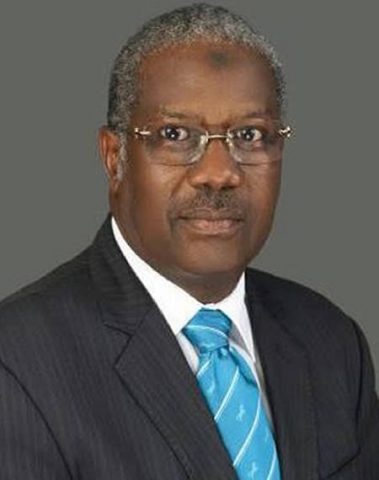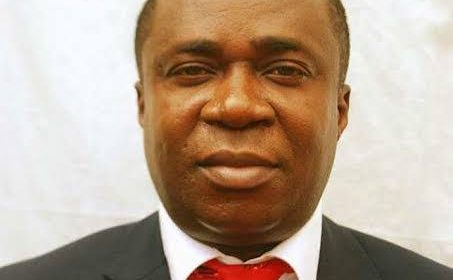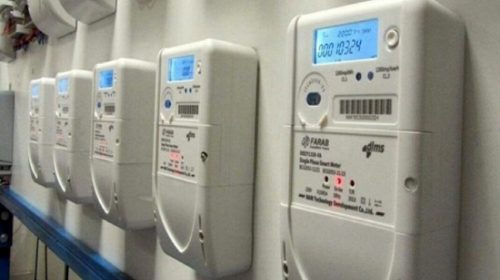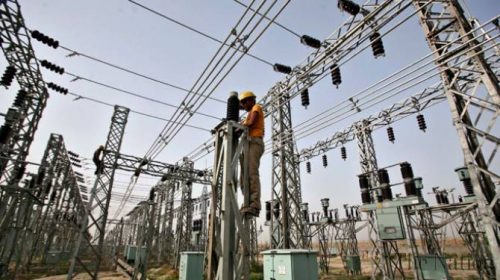Speech By President MAN, Engr Mansur Amed At FICAN Workshop In Lagos

Brief by the President, MAN, Engr Mansur Ahmed Brief on Pharmaceutical Industry to the Media
Preamble
The Pharmaceutical Industry is a sub-sector under the enlarged Chemical and Pharmaceutical Sector in the ten (10) major sectoral groupings of the Manufacturers Association of Nigeria (MAN)
The industry currently has 131 registered members in MAN with an estimated investment of over N300 billion. It is an important and vibrant sector with substantial holdings by the Nigerian investors.
Development and Current Issues in the Industry
• The industry has been fearing well although there are problems occasioned by issues in the economy which include but not limited to:
▪ High cost of production which are the results of not-too-friendly operating environment;
▪ Massive infrastructure deficit which compels individual investor to provide the required infrastructure at exorbitant cost;
▪ Dearth of long-term funds;
▪ Dumping of fake and adulterated drugs; and
▪ Multiple taxation and over regulation to mention a few,
• But the efforts of NAFDAC and SON have been collectively and substantially assisted in taming the issue of adulteration, while the present Administration has continuously addressed other exogenous factors impeding manufacturing generally which of course include the pharmaceutical industry;
• Business Operators in the industry have continuously invested in the sector in terms of product innovations and research in the development of wide range of healthcare products.
• Pharmaceutical industry which substantially dominated the Chemical and Pharmaceutical sector of manufacturing at about 70%, improved significantly in 2019.
• According to MAN Economic Review for 2019, capacity utilization in the industry averaged 61.9 percent in the second half of 2019 as against 59.0 percent recorded in the corresponding half of 2018; thus indicating 2.9 percentage point increase over the period.
Interventions in the Industry
• The Central Bank of Nigeria (CBN) as part of the proactive measures aimed at cushioning the impact of COVID – 19 pandemic on the economy and particularly on healthcare, introduced a N100 billion credit support intervention for the healthcare industry,
• Specifically, the scheme is to provide credit to indigenous pharmaceutical companies and other healthcare value chain players intending to build or expand capacity;
• It is expected to increase private and public investment in the healthcare sector, facilitate improvements in healthcare delivery and reduce medical tourism in order to enhance foreign exchange conservation.
Eligibility Criteria
✓ Healthcare product manufacturers — pharmaceutical drugs and medical equipment;
✓ Healthcare service providers/medical facilities — Hospitals/Clinics, Diagnostic Centres/Laboratories, Fitness and Wellness Centres, Rehabilitation Centres, Dialysis Centres, Blood banks, etc.;
✓ Pharmaceutical/Medical products distribution and Logistics services; and
✓ Other human healthcare service providers as may be determined by the CBN from time to time.
Conditions for the Facility
Loan Limit:
✓ Working Capital: 20% of the average of 3 years of the company’s turnover subject to a maximum of N500 million per obligor. However, where the enterprise is not up to 3 years in operation, 20% of the previous year’s turnover will suffice.
✓ Term Loan: Maximum of N42 billion per obligor.
Interest Rate
✓ Interest rate under the intervention is at a limit of not more than 5.0% p.a. (all inclusive) up to 28th February 2021 and thereafter, interest on the facility will move up to 9% p.a. (all inclusive) as from 1st March 2021.
Loan Tenor
✓ Working capital is for a maximum period of one (1) year, with provision for rollover not more than three (3) years.
✓ Term loan has a maximum tenor of not more than 10 years with a maximum of one-year moratorium on repayment.
Collateral Requirement
✓ The collateral to be pledged by borrowers under the programme is in line with the requirement under the Real Sector Support Facility (RSSF) and Differentiated Cash Reserves Requirement (DCRR) as provided by the Central Bank of Nigeria (CBN), these two schemes are the sources for the facility.
Expectations of CBN from our Members:
• To utilize the funds granted under the Scheme for the purpose for which it was granted;
• Should insure the project being financed;
• Adhere strictly to the terms and conditions of the credit facility;
• Always make the project and records available for inspection/verification by the CBN and Participating Financial Institutions; and
• Full compliance with the Guidelines of the Scheme.
The Current Situation with Members
• As at now and from the information available to MAN President, only ten (10) members in the industry have obtained the facility. This was not due to lack of funds or any technical hitch from the apex Bank (CBN) but investigation revealed that some of them have not been too willing to take facility of a huge sum as provided by this scheme.
• Another reason is that many are still trying to perfect their document; given the technical details required by CBN as being administered through the Participating Financial Institutions (PFIs).
Conclusion
Conclusively, distinguished members of the Press, I would like to crave your indulgence not to mention or give the details of the ten (10) members of the Association that have obtained the facility. But in all, I think the CBN has done a wonderful job by creating this intervention fund, which will go a long way at expanding the capacity of our members.
I believe some other companies in the industry who are yet to obtain the facility are only trying to put things in order and whenever such are ready, the funds are there for them to access as graciously provided by the CBN.
I would therefore wish to use this opportunity to appreciate the Governor of the CBN, Mr. Godwin Emefiele, CON for the wonderful opportunity given to our members; the manufacturing sector as a whole and the development of the Nigerian economy in general. We would further assure the CBN that members would complement the effort of Government by utilizing the fund to develop the industry and provide the necessary platform for Nigeria to compete with her peers in the industry within the continent as we approach the single market for Africa through the implementation of the African Continental Free Trade Area (AfCFTA) Agreement next year.
Page | 1







Leave a Reply